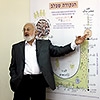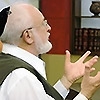Audio Version Of The Blog – 11/16/20
Listen to an Audio Version of the Blog
Download:MP3 Audio

Listen to an Audio Version of the Blog
Download:MP3 Audio

As we develop, we become more differentiated, each one comprised of his “I” and the Creator—in contradiction to himself. Thus the future holds divisions of everyone and each person—and the means of conciliation is not for one person to suppress another, but for each one to come out of his own nature, to freedom from it…
From Twitter, 11/16/20
Related Material:
My Thoughts On Twitter 11/14/20
My Thoughts On Twitter 11/12/20
My Thoughts On Twitter 11/9/20
Medium published my new article “It Takes Two to Disagree”
November 16 is the International Day for Tolerance. It seems as though a day of tolerance has never been more apropos. At the same time, with politicians and journalists openly calling to remove dissenters from society and even to “burn them down” because “if there are survivors….they will do it again,” it seems as though tolerance has never been more wishful thinking.
All the views, even the most extreme, need their day in the sun. In the end, they deepen and broaden our understanding of ourselves as human beings. But now, I believe we’ve seen enough of the negative side of human nature, and it’s time to harness the diversities between us to the benefit of all of humanity.
Intolerance seems to come in waves. Whenever intolerance rises beyond a certain level, violence breaks out in one form or another. Now it seems we’re quickly heading toward another peak in intolerance and unless we handle it better than before, it will erupt just as past waves have. And if history can teach us anything, it is that the peaks grow higher each time, and the resulting violence more horrific.
We need to understand that human nature isn’t growing more tolerant, but more extremist and fanatic. As a result, when one side speaks of annihilating the other side, as is the case today, it will attempt to do so physically. There is no question of if, but only of when. When both sides speak in these terms, it will lead to war.
Today, speaking about anything that resembles friendship, amicability, togetherness, or even merely tolerance arouses forgiving smiles, at best. More likely, such words will be met with due sarcasm because nothing is less realistic today than to ask people to be tolerant to one another.
Moreover, as time goes by, it will become even more unlikely. Human nature is dynamic, evolving toward increasing individualism, and therefore intolerance toward others. Today, individualism has reached such levels that there are more families with one parent living at home than with two, and nearly 30 percent of households are single-person households. In such a state, is it hard to imagine that many people don’t want anyone around them?
If this trend remains, the American democracy will soon be a thing of the past. To avert what seems like an inevitable fate, we must adopt radical thinking: Each of us must realize that the person I want dead, the person who disagrees with me, actually holds my lifeline. Without that person, I will not be who I am, what I am, and I will not be at all. It does not mean I have to agree with a person I can’t stand, but simply that our disagreement is what keeps us going, and it takes two to disagree.
Nature, which develops all creations, fashions them into plants and plant-eating animals, or animals that eat plants and animals that eat other animals. All of them depend on one another, though clearly none of them particularly likes the other. Likewise, human nature drives all of us to develop. It fashions us into different people, who clearly don’t like each other, but who are dependent on each other just as animals are dependent on each other for their survival. We wouldn’t have fascists if we didn’t have communists; we wouldn’t have secular if we didn’t have religious, and we wouldn’t have moderates if we didn’t have extremists. We are defined by what we aren’t no less, if not more, than we are defined by what we are.
The difference between animals and humans is that we can see, analyze, and appreciate the fabric that nature has created. If we could look at the big picture and see that we, humanity, form a diverse fabric that is just as beautiful as nature’s wildlife, we wouldn’t be at each other’s throats. On the contrary, we would appreciate and value the differences, which we would then refer to as diversity.
Everything is needed for its own time. All the views, even the most extreme, need their day in the sun. In the end, they deepen and broaden our understanding of ourselves as human beings. But now, I believe we’ve seen enough of the negative side of human nature, and it’s time to harness the diversities between us to the benefit of all of humanity. Humankind has championed countless ideologies. Now it’s time to champion the ideology of unity, which states that whatever you believe in and support, keep it, it is yours, and add it to the fabric of humanity. Only a society that places unity as its top value can tolerate diverse views within it, give them their rightful place, and use them to strengthen and improve all of society.
[274018]
 Michael Laitman, On Quora: “How can we bridge the political divide in America?“
Michael Laitman, On Quora: “How can we bridge the political divide in America?“
Bridging the divide in America requires everyone feeling considered and represented, and not like it is in the current state, where roughly half of the country celebrates victory, and the other half feels deceived and embittered.
People of all political orientations need to sit and discuss their issues. However, to successfully unite above divisions, the conversation needs to adhere to a few guidelines, like making sure all participants
By doing so, participants would aim to reach decisions after taking everyone’s points into consideration.
It is important in such a conversation that everyone states their position, and it is not expected that anyone make any concessions in doing so. Also, the “round” setup of this conversation would certify that no single viewpoint dominates the others, as doing so would shatter the desired unification into pieces, rendering zero progress. Rather, through each participant having the time to express their full viewpoint and each holding to the aforementioned rules, which include listening to all of the viewpoints, then the participants will reach a certain kind of balance.
How does it work that a conversation that is made to accord to the aforementioned guidelines will reach a certain kind of balance, and is capable of bridging divisions?
It is because those guidelines stem from nature’s unified form, and if we hold ourselves to them, we will gain support from nature, because nature ultimately functions in order to draw us to greater unification. If we fail to uphold those guidelines in our discussions, and aim to impose our own viewpoint over those of others, then we gain no support from nature’s unified form, and remain in our inborn natures that naturally sway one way or another.
We have been “implanted” with various divisive stances from nature precisely in order that we connect upon them and discover a harmonious reality by doing so. We thus need to have unification, the bridging of our divides, as a goal and high in importance when approaching such a conversation, otherwise we will fall “victim” to our divisive drives that perceive and sense a narrower picture than the much greater one that exists when we unify above them.
What would make us want to rise above our divisive stances in the first place? Why can we not continue trying to overpower the other side and implement how we think things should be run?
It is because, ultimately, the underlying division does not let anyone become satisfied, and the longer we develop while remaining divided, then the more negative and bitter we become. In extreme cases, each pushing his or her divisive position onto others can lead us to total disorder and turmoil, to unfortunate levels of suffering that would force us to revise how we conduct ourselves.
We would thus be wise to raise the importance of uniting above our divisions so that it becomes our primary concern, and realize that what stands between a life of suffering or harmony for everyone is whether we can carefully organize ourselves in order to bridge those divisions. The laws of nature are on our side and will support us if we do.
I discussed this topic and answered questions about it in my Q&A with writers on November 15, 2020. Watch the video here [1:31:48]
Image: “One Goal” by Zenita Komad.
 First, the light creates the desire to receive through the four stages of direct light and fills it. But the last fourth stage of desire makes a restriction, and the light goes out of all the spheres of this desire, from all its stages. And then the fourth stage begins to attract light by a special method called “line.”
First, the light creates the desire to receive through the four stages of direct light and fills it. But the last fourth stage of desire makes a restriction, and the light goes out of all the spheres of this desire, from all its stages. And then the fourth stage begins to attract light by a special method called “line.”
The difference between a round sphere and a line is that there were no restrictions in the sphere and light could fill all the desire created by the Creator. And in the line, the desire itself determines in what form the light will come and fill it.
The circle is the filling of desire without any restrictions, and the line is the condition that the light comes only according to the desire and the desire restricts the light, leaving only a thin line from the sphere.
From this we can see that in the four stages of direct light there is no creation yet, and everything exists as created by the Creator. But then the desire to enjoy begins to manifest itself and limits the upper light, determining how the light can fill it and connect with it.
At first, all the spheres—zero, first, second, third, and fourth—were completely filled with light. But then the fourth stage felt itself receiving and opposite to the light. So it restricted its desire, and the light was gone. But since nothing is done in the spiritual by halves, the light has departed all spheres.
And now the fourth stage itself decides in what form the light will come and fill it, and decides not only for itself but also for all other spheres. And it turns out that all this empty space, all the spheres are cut only by one thin ray (line), one sector of light.
It is like a tube through which light flows, passing outside from the world of Ein Sof to the center of all spheres, inside all space, where the restriction operates.
The line is an extent of the equivalence of the desire to receive of the creation to the desire to bestow of the Creator. The line shows how much the creation is able to resemble the Creator; the more similar to the Creator the creation can be, the thicker the line, and the less similar, the thinner the line. And this determines how much light can flow through this tube. The line is a measure of a creature’s desire to become like the Creator.
[273717]
From the 2nd part of the Daily Kabbalah Lesson 11/9/20, Baal HaSulam, The Study of the Ten Sefirot
Related Material:
The Formula Of The Correction: A Circle – A Line – A Circle
Direct Channel Of Light
What Is The Left Line?

The Times of Israel published my new article “The True Meaning of Tolerance”
Which does this world resemble more, a peaceful garden or a jungle with wild predators devouring each other? Most likely the latter. At the same time clashes and division are rampant in the United States as well as the rest of the planet, the UN’s International Day for Tolerance is commemorated. But unless we explore what tolerance truly means there will be no implementation. Understanding and mastering the art of listening to and embracing one another is what will give us the tools to flip polarization into balance.
“Tolerance is respect, acceptance and appreciation of the rich diversity of our world’s cultures, our forms of expression and ways of being human,” states the UN Declaration of Principles on Tolerance. The ideals of those words are important, but marking a special day for tolerance on the calendar is meaningless if we do not educate humanity first about the essence of what this premise means and how to put it in practice in our daily lives. Otherwise, “tolerance” becomes an empty word.
Similar situations exist with other commemorations such as the International Women’s Day. Have we ever heard people receiving lessons during their early upbringing—in kindergarten or in school—on how to respect women or even the most basic principles of how to respect and love their mother? I have no such recollection. Therefore, our education is lacking as we fail to engrave core values into the social fabric.
The word for “tolerance” in Hebrew is sovlanut, from the verb “lisbol,” (to suffer), as if we need to endure or suffer the opinions of others. However, in that sense, there is no need to tolerate but instead to embrace one another. The suffering we experience stems from the fact that our vision is self-centered and is unable to feel others, particularly those who are different from us. We should rather accept and feel the other as ourselves, his opinions and feelings, even if they are contrary to ours.
We should base our human relationships on the principle that everyone has a place in society, and should recognize that difference and diversity create a colorful and wonderful mosaic. Nature created us this way so we would come to realize how the richness of opinions from diverse minds empowers everyone. If only we knew how to properly integrate the myriad pieces of the human cogwheels, then we would see how each one is indispensable for the synchronized and well-oiled mechanism called creation.
But why have we become increasingly reticent over the years to even look each other in the eye, let alone to properly communicate and connect? The reason is tied to our constantly growing ego that nature develops within us—our insatiable drive to fulfill our own desires to the detriment of others. The more the ego grows, the less calm we become.
Aggravation, intolerance, and mutual rejection are all states that nature compels us to feel in order to enable us to recognize our human egoistic approach as the cause of the turbulence in our lives, and by reaching a dead end in our ability to get along with others, to develop a sincere new desire to rise above the ego.
The evolutionary process moves humanity from deeper levels of conflict to higher states of balance and cooperation. Human society is coming to a point where extreme social polarization will inevitably bring about a higher level of social organization. There is no escape from learning how to unite above opposing sides, not by eliminating the opposites, but rather by balancing them to create a higher understanding.
Therefore, in order to avoid social catastrophe we will have to foster a new mindset and establish an entirely new model of socio-political order, one that can accommodate opposite views to achieve social stability rather than perpetuate and deepen social division.
In nature, the foundational urge operating within all living organisms is to find the coexistence and interplay between two opposite forces, creating a higher level of order and prosperity. Evolution brings opposites together through dynamic equilibrium. Knowledge about how this principle of the inner system of nature works—the force that operates and controls everything in reality—is our only anchor in the changing world.
Bringing people of different views closer to each other in order to reach new levels of mutual understanding should be the ultimate goal of today’s societies. When this takes place, our differences will remain, but in a complementary way, for collective benefit. Then real tolerance will occur, understood as comprehension, acceptance, and brotherhood. As Kabbalist Rav Yehuda Ashlag (Baal HaSulam) wrote in his essay The Freedom:
“Each individual should maintain the integrity of their inheritance, and the contradiction and oppositeness between them will remain forever, to secure the criticism and progress of wisdom, which is the major advantage of humanity.”
[274015]
 Remark: It happens that a person has potential, is talented, but does not have motivation to do a certain type of work although he could do it.
Remark: It happens that a person has potential, is talented, but does not have motivation to do a certain type of work although he could do it.
In my opinion, there is no such thing in nature. If an animal has some potential, it uses it in full.
My Comment: But they have animalistic motivation, so there are no problems there. Animals, as a rule, cannot have such a state as depression, lack of motivation. True, they began to display this as well lately but only because they receive everything from man. However, this is not inherent in them by nature.
Question: What is the reason that a person can have potential, have abilities but no motivation?
Answer: Because a person grows above his animalistic state and nature demands precisely motivated actions from him. “What do I live for?”—this is the question where the lack of motivation and all the negative problems come from.
[273508]
From KabTV’s “Management Skills” 8/28/20
Related Material:
Connection Between The Development Of Desires And Motivation
What Determines The Motivation To Live And Work?
Motivation For Action
 Question: When are you happy in your soul?
Question: When are you happy in your soul?
Answer: When people understand that they are living in an eternal, perfect world and that it is only because of their limited vision that they cannot see it.
Question: Let’s imagine a hypothetical situation in which you meet yourself in a different reality. What would you ask yourself?
Answer: Generally speaking, this is what I am trying to do. There is nothing new there.
The fact is that when you meet yourself, there is nothing to ask since you coincide in desires, opinions, and everything else, otherwise you would not meet.
Question: How do you seek answers to your questions?
Answer: I try to be detached from myself and join the flow of the thought of creation that is above us. This is where I get the feeling, the information, and everything I need.
[273141]
From KabTV’s “Kabbalah Express” 9/27/20
Related Material:
Blitz Of Kabbalah Tips – 7/24/20, Part 2
Blitz Of Kabbalah Tips – 7/24/20, Part 1
Blitz Of Kabbalah Tips – 7/2/20
 Question: There are several conditions for people to unite. First, there must be social sensitivity, that is, a tendency to unite. Second, the presence of women in the team is needed, and third, absence of a declared leader.
Question: There are several conditions for people to unite. First, there must be social sensitivity, that is, a tendency to unite. Second, the presence of women in the team is needed, and third, absence of a declared leader.
Under these three conditions, a group of people can unite and solve a problem that lies on a higher plane. The intelligence of individual group members is secondary.
Equality and diversity are what make it possible to make the best decision in a team. Why should both of these factors be present at the same time?
Answer: If two opposites are able to unite above their egoistic qualities and goals, then between them they reach a new collective quality, which is already higher than both of them.
Question: Does it mean that individuals must be very different but equal in relation to the goal they want to achieve?
Answer: Yes. Therefore, they achieve hundreds of times more.
[273782]
From KabTV’s “Communication Skills” 9/25/20
Related Material:
Society As An Individual
The Technology Of The “Wisdom Of The Crowd”: Motivation
The Duty To Follow A Guide
 Inanimate nature, plants, and animals live according to their natural instincts. If there are good external conditions, they multiply, and if conditions worsen, they wither.
Inanimate nature, plants, and animals live according to their natural instincts. If there are good external conditions, they multiply, and if conditions worsen, they wither.
Man, however, adjusts the environment to his needs, changes it to make it more comfortable. If conditions are bad, man improves them: brings water to places where there is no water, lights a fire to make himself warmer, and even invents the refrigerator. He creates good conditions for himself.
If man did not create a favorable environment to live in, there would not be eight billion people on Earth today. Over the past hundred years, the world’s population has quadrupled.
There is no such rapid population growth in nature. But people strive to change nature—the inanimate, vegetative, and animate nature that surrounds them—in order to build a comfortable environment according to their egoistic interests.
There are no other such species in nature. Animals make their lives comfortable to some extent, they dig holes for themselves and even store food for the winter. But unlike people, they do not build power plants, gas stations, etc, but use only those forces they have received from nature without intending to improve and refine them in order to use them to build a more perfect world. Only man is capable of such a thing.
If humanity would advance correctly using all the resources given to us by nature, we will be able to rid ourselves of all problems. Through the correct connection between people, it is possible to correct our nature and come to a beautiful life.
Humanity is trying instinctively to use four qualities for building a society: mercy, justice, truth, and peace, but we see that the current state of society is the result of the incorrect use of these four principles.
If we learn how to use these principles—mercy, justice, truth, and peace—correctly, we will be able to receive all the benefits. These are the four foundations that distinguish man from beast, and with their help we build human society.
In the inanimate, vegetative, and animate world, there is no such concept as “society.” Although there are such communities as a close-knit anthill or a flock, everything works on the basis of instinct, controlled by nature.
But if a person wants a good life, then this is impossible without a properly organized society. Therefore, we must implement the four principles: mercy, justice, truth, and peace.
Truth is the most certain principle, but the problem is that we do not know it. Truth is the name of the Creator (Emet): the letters “Aleph-Mem-Tav” (א-מ-ת). “Aleph” (א) is the first letter of the alphabet, in the middle “Mem” (מ) is the quality of Bina, and the ending “Tav” (ת) is the last letter of the alphabet. This is how we receive the truth, the name of the Creator. With this word, these letters, the upper force created all the creation.
But we cannot govern human society by the quality of truth. So instead of truth, we use mercy, justice, and peace to somehow get closer to the truth.
Truth is complete bestowal, the nature of the Creator. Yet, since we are not able to act according to the quality of bestowal, called truth, we try in some way to get closer to it in order not to eat each other. These auxiliary principles are called mercy, justice, and peace.
These are not perfect principles, but in the absence of choice, we have to follow them in order to maintain a more or less normal relationship between us.
[273838]
From the 3rd part of the Daily Kabbalah Lesson 11/10/20, Writings of Baal HaSulam, “Peace in the World”
Related Material:
Beware Of Merchants Of Truth
Replacing The Truth With Various Alternatives
Where Is The Truth?